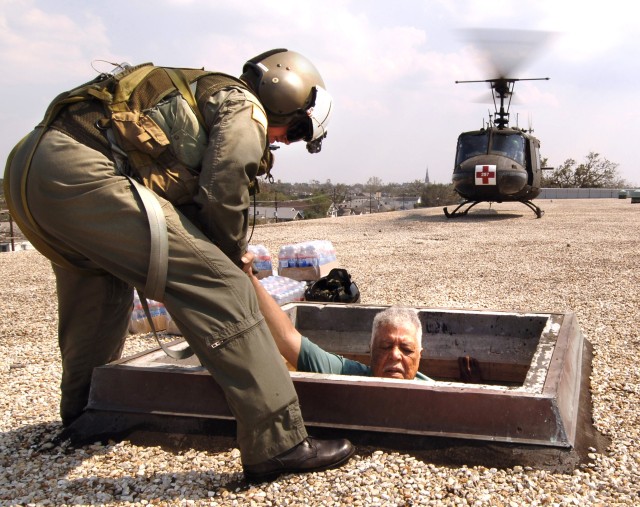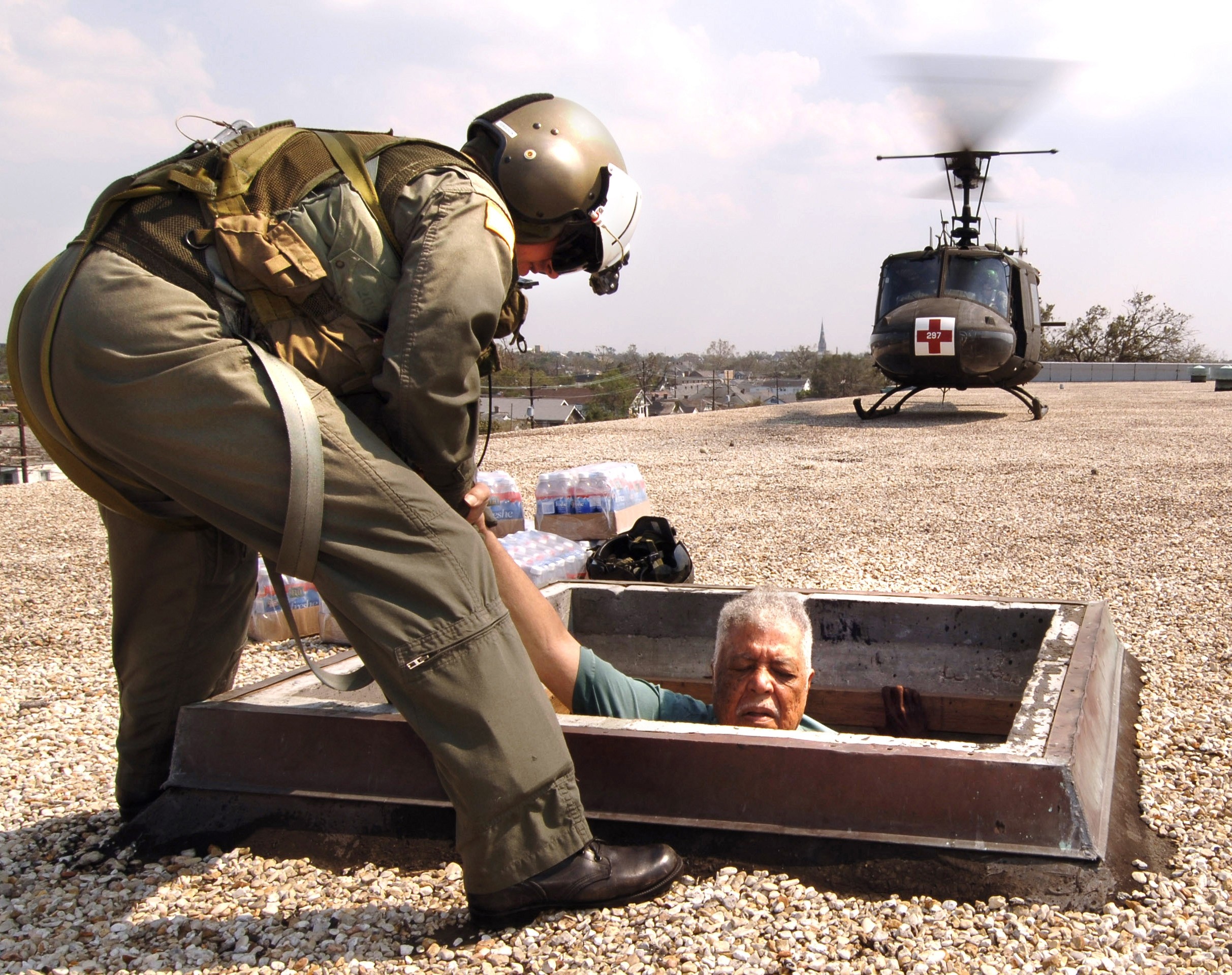
WASHINGTON (Army News Service, May 13, 2008) -- When Hurricane Katrina struck the Gulf Coast in 2005, the Department of Defense was ready to spring into action with a full spectrum of relief efforts, but red tape needed to be cut.
"The whole contingency plan for how we conducted business at every stage had to undergo legal review," said Lt. Col. Allen K. Goshi, then chief of operations law for Joint Task Force Katrina. In that role, he helped negotiate the red tape as fast as possible and make sure operations were not held up while providing legal advice to Lt. Gen. HonorAfA and his staff on all things related to the task force's response to the storm.
Goshi was one of two Army attorneys recognized Thursday by the Judge Advocates Association with the 2008 Outstanding Career Armed Service Attorney Awards.
Goshi, now with the International and Operational Law Division of the Army's Office of the Judge Advocate General, earned the award for active-duty Army attorneys.
Lt. Col. Kevin M. Walker, deputy commander of the 151st Legal Support Operation based in Alexandria, Va., earned the award representing the Army Reserve. In his civilian position, he works as general counsel for the National Drug Intelligence Center in Johnstown, Pa.
Some of Goshi's other career highlights center around the Global War on Terror.
On and off since 2001, Goshi has helped train troops preparing to deploy, educating them about the legal standards of the irregular war situations encountered in the Global War on Terror, ranging from overall rules of engagement, to detainee operations to day-to-day sustainment operations.
He said throughout that time he helped to evolve and update the doctrine and legal standards in relation to the new and unique situations the military faces overseas, especially when he deployed to Iraq as the chief of operations law for Multi-National Force-Iraq.
Another mission while in Iraq was to help the Iraqis with their judicial system.
He said the military supported Iraqi judges at the national and provincial levels and worked closely with the Department of State, the Department of Justice and other agencies to help them strengthen their judicial system
Walker also spent time in Iraq, with Multi-National Corps-Iraq. He was the chief prosecutor for MNC-I, whose jurisdiction included around 80,000 Soldiers in theatre at the time.
Charges against Soldiers could range from violating orders like general order number one which prohibits things like possessing alcohol all the way up to more serious violent crimes. While his office kept busy, Walker said he helped his Soldiers keep things in perspective.
"I always had to tell my Soldiers we're only really dealing with a small part of the military population in Iraq," Walker said. "Less than half of one percent of military personnel in theatre were in criminal trouble."
He said the job of prosecuting Soldiers was important because it helped show the Iraqi people that military personnel were being held accountable for their actions.
While overseas, Walker was lead prosecutor in the largest trial against a Soldier tried in Iraq, U.S. v. Steele.
Lt. Col. William H. Steele had commanded Camp Cropper in Iraq, where several high-value detainees were held, Walker said.
While found not guilty on a charge of aiding the enemy, Steele was found guilty of six other offenses, including charges related to mishandling classified documents, and was sentenced to two years confinement, a reprimand, total forfeiture of pay and allowances and dismissal from the service.
Walker said while there have been more publicized Soldier trials held stateside, the Steele trial was the largest of its kind in Iraq by number of witnesses, about 50, and the number of witnesses who had to be brought back to Iraq for the trial, about 30.
Walker, who served with the National Guard from 1985 to 1992 and was on active duty from 1993 to 2004, said other highlights from his career include being able to teach legal courses all over the United States and abroad, including spending a week in Kenya advising government officials there on the structure of the U.S. legal system and how it works.

Social Sharing